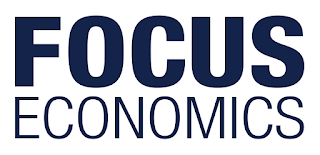Following three months of political deadlock and two unsuccessful attempts to form a government, on 6 June the Italian Parliament signed off on a government formed by the right-wing League party and the leftist populist Five Star Movement. As the two parties have different ideologies and the coalition agreement is the result of complicated negotiations, governing will not be smooth sailing. The deadlock has been resolved at a time when the recovery seems to have lost some steam. Recent GDP data shows that growth was broadly stable in Q1, but the economy shows some signs of having slowed in Q2, partly affected by subdued growth in the whole eurozone. In April, the industrial sector weakened considerably, and retail sales contracted sharply amid falling consumer confidence. However, NPLs declined further, confirming that the banking sector has indeed turned a corner, and the construction sector rebounded significantly. That said, survey-based indicators deteriorated further in May, a consequence of both weak external demand and the difficult political situation. • Going forward, Italy will navigate in uncharted political territory. Political uncertainty, together with possible financial turbulence, represents the main downside risk to growth, especially in light of the fragility of Italy’s public finances. That said, further improvements in the banking sector should help strengthen business credit and investment, while moderate inflation and employment gains should support consumer spending. FocusEconomics panelists project growth of 1.3% in 2018, down 0.1 percentage points from last month’s forecast, and 1.2% in 2019. • Harmonized inflation rose to 1.0% in May from 0.6% in April. Moderate domestic pressures will restrain inflation, although higher prices for fuels will act in the opposite direction. Our panelists expect inflation to average 1.2% in 2018 and 1.3% in 2019.
Political turmoil
Following months of deadlock, Italy forms a new government but still faces many unknowns Three months after the elections and following two failed attempts to form a government, on 6 June the Italian parliament finally ended the political impasse and voted for a government formed by the populist Five Star Movement (M5S) and right-wing League party. The deadlock was broken when the League accepted to replace their pick for Minister of Finance, Paolo Savona, who was vetoed by the president, with Giovanni Tria, a university professor with a less Eurosceptic profile. Financial markets reacted nervously, sending the 10-year bond yield above 3.0% in the days following the arrival of the new government, although yields declined thereafter. The new coalition’s proposed economic program, based on an agreement reached in mid-May following complex negotiations, is protectionist and fiscally expansionary, including both tax cuts and higher spending. It has, however, vague details on how to provide adequate financing. The proposed measures, combined with Italy’s colossal public debt and already sizeable fiscal deficit, could cause severe financial distress, especially at a time when the European Central Bank is preparing to reduce its monetary stimulus. However, a large degree of uncertainty exists over the extent to which the coalition will be able to enact its program, due to the ideological and territorial differences between the two parties and their electorates. The introduction of a proposed two-tier flat tax (at 15% and 20%) on personal and corporate income could help reduce the country’s heavy tax burden, improve competitiveness and boost both consumer and corporate spending; however, it could also jeopardize government revenues. The proposed guaranteed income, which would provide a minimum income of EUR 780 per month for a single household for a maximum of two years, along with changes to how the retirement age is determined, could increase already bulky public spending and dent labor market participation, which is already at one of the lowest rates in the European Union. In addition, a proposed new hourly minimum wage could raise labor costs for firms, hitting employment. Relations with European institutions will, furthermore, likely become strained under the new government. The coalition program commits the future government to promoting an amendment to existing European treaties that would devolve to member states some of the competences currently held by European institutions. Moreover, it questions EU rules on the fiscal deficit and proposes to exclude investment expenditure from the calculation of the deficit. These proposals, if carried out, could lead Italy to clash with European institutions and other member countries, who are already worried by the possible spillovers from a future mismanagement of public finances by the Italian authorities. In addition, the new coalition controversially wants to lift sanctions on Russia, which were the result of an agreement reached at European level. Further tensions may arise from migration policy. Italy is calling for a revision of the Dublin Treaty and wants to establish more stringent requirements for the reception and expulsion of immigrants. However, an agreement will be difficult to reach, given the existing divisions among EU countries.
July 08, 2018: -Italy has asked European regulators to extend a state loan-guarantee plan that has helped its banks put a dent in Europe’s biggest pile of non-performing loans.




